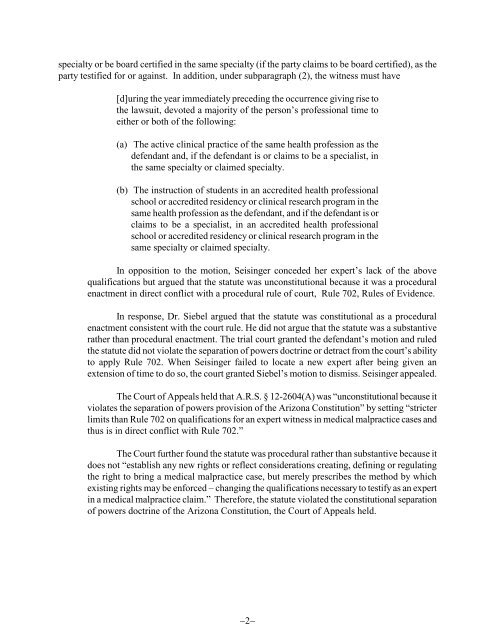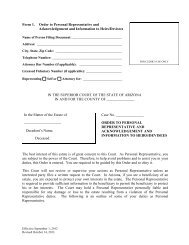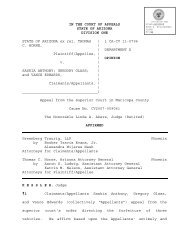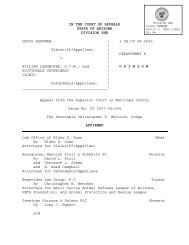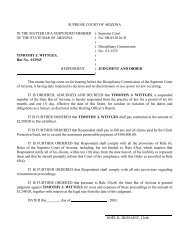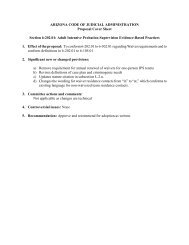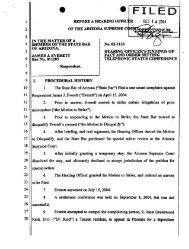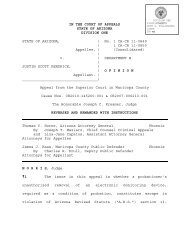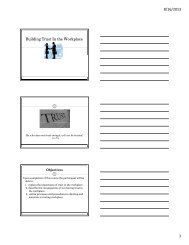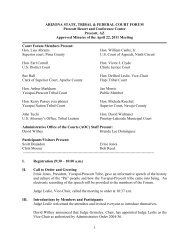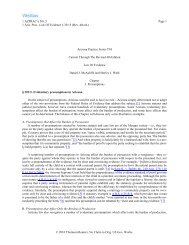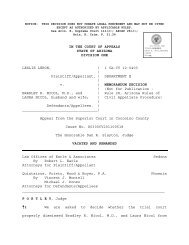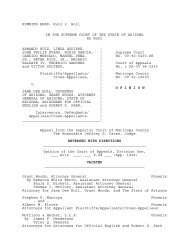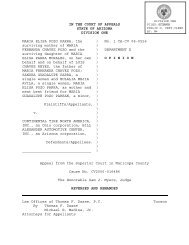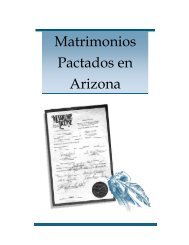CV-08-0224-PR
CV-08-0224-PR
CV-08-0224-PR
You also want an ePaper? Increase the reach of your titles
YUMPU automatically turns print PDFs into web optimized ePapers that Google loves.
specialty or be board certified in the same specialty (if the party claims to be board certified), as the<br />
party testified for or against. In addition, under subparagraph (2), the witness must have<br />
[d]uring the year immediately preceding the occurrence giving rise to<br />
the lawsuit, devoted a majority of the person’s professional time to<br />
either or both of the following:<br />
(a) The active clinical practice of the same health profession as the<br />
defendant and, if the defendant is or claims to be a specialist, in<br />
the same specialty or claimed specialty.<br />
(b) The instruction of students in an accredited health professional<br />
school or accredited residency or clinical research program in the<br />
same health profession as the defendant, and if the defendant is or<br />
claims to be a specialist, in an accredited health professional<br />
school or accredited residency or clinical research program in the<br />
same specialty or claimed specialty.<br />
In opposition to the motion, Seisinger conceded her expert’s lack of the above<br />
qualifications but argued that the statute was unconstitutional because it was a procedural<br />
enactment in direct conflict with a procedural rule of court, Rule 702, Rules of Evidence.<br />
In response, Dr. Siebel argued that the statute was constitutional as a procedural<br />
enactment consistent with the court rule. He did not argue that the statute was a substantive<br />
rather than procedural enactment. The trial court granted the defendant’s motion and ruled<br />
the statute did not violate the separation of powers doctrine or detract from the court’s ability<br />
to apply Rule 702. When Seisinger failed to locate a new expert after being given an<br />
extension of time to do so, the court granted Siebel’s motion to dismiss. Seisinger appealed.<br />
The Court of Appeals held that A.R.S. § 12-2604(A) was “unconstitutional because it<br />
violates the separation of powers provision of the Arizona Constitution” by setting “stricter<br />
limits than Rule 702 on qualifications for an expert witness in medical malpractice cases and<br />
thus is in direct conflict with Rule 702.”<br />
The Court further found the statute was procedural rather than substantive because it<br />
does not “establish any new rights or reflect considerations creating, defining or regulating<br />
the right to bring a medical malpractice case, but merely prescribes the method by which<br />
existing rights may be enforced – changing the qualifications necessary to testify as an expert<br />
in a medical malpractice claim.” Therefore, the statute violated the constitutional separation<br />
of powers doctrine of the Arizona Constitution, the Court of Appeals held.<br />
2


